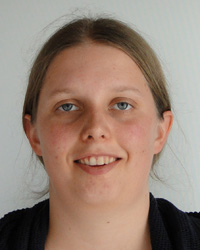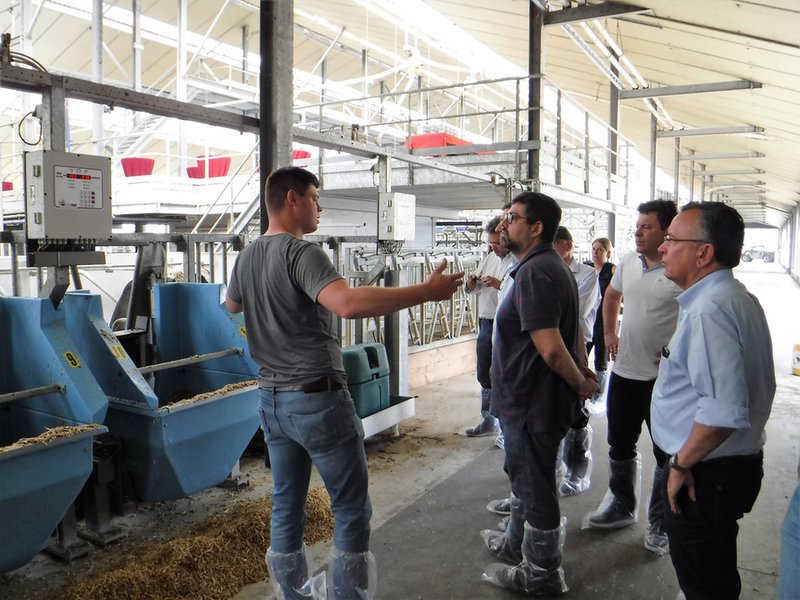ARTICLE
IoF2020 welcomes Brazilian delegation
A delegation of ministry representatives and researchers from Brazil have toured Europe to get an introduction to the goals and developments of the IoF2020 project. Through mutual exchange we can significantly enhance the impact of our project and together bring benefits to the economy, environment society and quality of life as a whole. Hence, we invited them to several of our use cases. With the aim to share best practices and knowledge, gathered throughout the first 18 months of our project, in order to support them in implementing a Brazilian IoT plan. Their visit started on 28 May in Brussels where they met with the IoF2020 ecosystem chair, Edwin Hecker. The exchange focused on the challenges of efficiently aligning different stakeholders and the implementation of a standardized platform to facilitate digital transformation in agriculture.

Jarissa Maselyne
researcher at the Flanders Institute for Agriculture, Fisheries and Food (ILVO),

Kristof Mertens
Business Chair in the IoF2020 meat trial
After their introductory meeting, the delegation visited our partners from ILVO, the Flanders research institute for Agriculture, Fisheries and Food, in Merelbeke, Belgium. At ILVO there is a strong track record in agri-food research, in agricultural engineering and in precision livestock farming (PLF). It is this group, focussed on PLF at ILVO, which is in charge of the coordination of two use cases within the IoF2020 project: the “Grazing cow monitor” and the “Pig farm management”. During their visit, the lead researchers demonstrated those IoT solutions at the ILVO test barn where both systems are installed.
During their visit to the dairy barn, the guests saw first-hand the collar with the attached STICKNTRACK GPS tracker that goes around the neck of the cow for the "Grazing cow monitor" use case. This technology enables the digital monitoring of cows’ grazing time and provides confirmation of an empty barn. With this data, digital reports are generated for legal controllers and dairy processors to meet the requirements for certification of milk from pasture and for ammonia emmision reduction measures.
From the dairy farm, the delegation moved to the pig barn, where the piglets warmly greeted the guests with loud grunts and oinks. In the “Pig farm management” use case, the aim is to develop a software application that centralizes all the registered data in the pig stable and subsequently presents it in a user-friendly dashboard with analytics, early warnings and prediction features. On display during this tour were the two types of registration sytems for feeding behaviour in the pig pens (the Nedap feeding station and the PigWise RFID feeder) through electronic ear tags. By combining data on food and water uptake and weight gain, crucial information becomes available for the farmers to effectively steer their management. This results in a mitigation of health problems and increased productivity.
If the lively debate after the presentations and the amount of questions during the farm visit are a scale to measure success, we can honestly conclude that this has been a very productive exchange of ideas and concepts, as well as a praise to the hard work of our use case partners.
